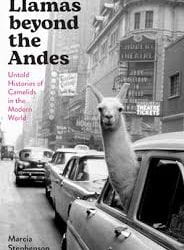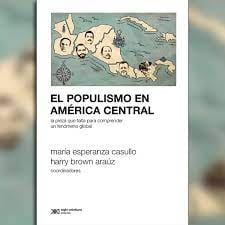A Review of Minoritarian Liberalism: A Travesti Life in a Brazilian Favela
Minoritarian Liberalism: A Travesti Life in a Brazilian Favela by Moisés Lino e Silva (University of Chicago Press, 2022)
In fact, Lino e Silva would argue, it is precisely the poverty and bleak possibilities imposed on favelas by a dominant, normative (neo)liberalism that end up pushing favela residents to construct their own, counterhegemonic “minoritarian liberalism.” Time and again, Lino e Silva’s interlocutors expound on the freedoms they feel in the space of Rocinha, freedoms denied to those living on the “asphalt” or formal city. Brazilians living on the “asphalt,” for example, need to uphold certain notions of respectability, even if they are queer, while “in the favela everything is possible” as Natasha remarks (p. 99), and queer/trans liberation can include a fuller exploration of non-normative desires and bodily transformations.
The most surprising aspect of Lino e Silva’s ethnography is the astoundingly queer friendly nature of Rocinha. The drug traffickers that rule over this particular favela are not only tolerant of LGBTQ subjectivities, they actively value sexual freedom. They protect sexual and gender minorities from harassment by other favela members, and even invite LGBTQ people to participate in group sexual encounters at the favela’s hilltop. As an anthropologist who studies Brazil, I had heard rumors that the drug traffickers ruling over Rocinha were queer-friendly, but I did not ever imagine that the hypermasculinity usually associated with drug trafficking in Brazil would allow for openly queer and trans practices to flourish so widely and so openly.
Minoritarian Liberalism offers a narrative of queer and trans hope, which is very welcome in a country recovering from the far-right, anti-LGBTQ politics of President Jair Bolsonaro, but I suspect it is not the whole story. Lino e Silva mentions briefly that brutally repressive paramilitary groups control many other poor communities in Rio de Janeiro, but we do not get any information about queer and trans freedoms in those contexts. It would have been impossible for Lino e Silva to move around several favelas controlled by competing factions without endangering his life (since his allegiance would have been put in question). Limiting his ethnographic study to one favela thus makes complete sense, but I still worry that focusing only on Rocinha might provide a romanticized version of what living in a Brazilian favela can be like.
We get only brief glimpses into how precarious these minoritarian freedoms might be, and under what conditions they can flourish. A particularly powerful and successful chapter describes how Natasha was once nearly stoned to death in her home town of Martinslândia, in the state of Ceará, and was reviled by male relatives who saw her travesti identity as dishonorable. Lino e Silva argues that the “peasant liberalism” of the rural Northeast, like the “minoritarian liberalism” of Rocinha, is steadfastly opposed to neoliberal ideologies that favor individualism, but it also demands a moral personhood that is very normative in terms of gender and sexuality. Natasha’s freedom to be herself in Rocinha, therefore, requires her to give up ever going back to her place of birth, due to the very real threat of violence she is under in Ceará – her gender identity both expands her world and limits it in other ways.
I wish that Lino e Silva had theorized more thoroughly how freedom and unfreedom relate to each other, particularly because he aligns his work with decolonial and abolitionist anthropology. The book’s epilogue, for example, mentions that homophobia in Rocinha increased after the police invaded and forcibly “pacified” the favela in preparation for the 2014 World Cup and the 2016 Olympics Games. The ongoing war against the poor in Brazil, that Afro-Brazilian scholars such as Jaime Alves argue is driven largely by anti-Blackness, is a severely limiting factor for any kind of minoritarian liberalism, and Lino e Silva could have engaged more deeply with the racialized aspects of favela life.
In a particular telling vignette, Lino e Silva tells a story of inviting Natasha to a queer party in a middle-class neighborhood, but she does not enjoy herself, exclaiming that she experienced “more liberty in the favela” (p. 54). Knowing well how very white such queer middle-class spaces can be in Brazil, I wondered if her discomfort also had to do with unspoken racial and class norms, which told her she did not belong there. Given Natasha expresses racist opinions to Lino e Silva on another occasion, I wondered whether liberty in Brazil can ever be delinked from racialization processes, and whether a minoritarian, “maroon liberalism” (p. 42) can carve out a space where people feel (at least temporarily) free from racism.
Natasha’s death frames the book, serving as an opening vignette and a closing chapter, which works great from a narrative standpoint but troubles me as a trans scholar. Her death is powerful and poignant, particularly because Lino e Silva discovers she is sick and initially insists on getting her a diagnosis, suspecting she might be HIV positive, but she refuses to engage the medical system. Lino e Silva reflects deeply upon how he should not have imposed his own bourgeois sensibilities and normative liberal values onto Natasha, and he also reflects on the violence Natasha suffers after her death, when her family buries her in men’s clothes. We also learn many of her closest queer friends, who are portrayed living fast and loose, “as if there is no tomorrow” (p.173), also died very young.
As readers, we are called to mourn Natasha’s death and the deaths of her friends together with Lino e Silva, but their death is almost portrayed as inevitable and as an act of freedom:
Queer favela dwellers present a problem for normative liberalism because they challenge the social contract requirement that one must offer obedience to the nation-state in exchange for the care and for the protection of their lives. Minoritarian liberalisms and queer experiences in favelas reconfigure life and non-life in such a way that it becomes impervious to the profit maximization requirements of neoliberalism. This is not a simple issue to be fixed through further inclusion of this population into public health policies, development projects, or even an issue of Universal Human Rights alone (p. 187)
I find this particular framing of queer death problematic, particularly given that trans and travesti activism in Brazil is thoroughly dedicated to denouncing the structural inequalities that lead to gender-nonconforming Brazilians dying very young. The Brazilian trans activist and scholar Bruna Benevides has described this structural violence as a purposeful “necrotranspolitics” of the state. Another Brazilian trans scholar, Viviane Vergueiro, makes a strong case that the Brazilian medical system’s transphobia is what makes it inaccessible to trans folks and travestis, and I believe this helps explain why Natasha refused medical care in the first place. However, Lino e Silva seems to make the case that any inclusion within public health is undesirable as a political project—that it would lead to less freedom or represent a compromise of sorts with the state.
I agree with Lino e Silva that trans and travesti subjects do not desire normative inclusion into the state, but they still make clear demands from the state and in fact are fighting to capture the state for their own interests, as many of them enter politics (Erika Hilton and Duda Salabert were elected to the National Congress in the 2022 election, a historic first for trans and travesti politicians). The rejection of respectability politics and bourgeois liberalism can coexist with demands for safety, health care and political enfranchisement. To frame Natasha and her friends as destined for a young death, instead of as casualties of state negligence and structural transphobia, takes away their agency to change the state of affairs in Brazil. It also falls into a problematic narrative that portrays trans people as tragic figures whose life is inevitably short because it is perceived as radically outside the norm and thus impossible – a narrative that trans scholar Cael Keegan argues is everpresent in most mainstream potrayals about trans lives. Perhaps if Lino e Silva had engaged with critical trans studies in his work, he could have avoided these pitfalls.
I think Natasha wanted to live, to continue exercising her freedom, but the Brazilian state and Brazilian society killed her, because her freedom was deeply constrained by the structural inequalities of her social context. Minoritarian Liberalism is so preoccupied with finding freedom in the favela that I worry it sometimes ignores the clear unfreedoms that shape the mostly fleeting experiences of travesti joy and queer desire. We also get no clear sense of how the national optimism and booming economy of the early 2010s shaped Lino e Silva’s ethnography, particularly since it was replaced by sharp political polarization and what the anthropologist Sean Mitchell calls a “cruel pessimism” that pushed even working-class Brazilians to embrace Bolsonaro’s fascism as a solution to national problems.
Lino e Silva would probably respond that there are too already too many ethnographies focused on the suffering of the poor, and he wanted to write something radically different. In a sense he is correct, the turn towards what Sherry Ortner and Lucia Cantero call “dark anthropology” has made anthropology focus on inequality above all else, and perhaps we do miss the amazingly creative ways by which people resist structures of domination in their everyday lives. Rocinha, at the very least, provides an interesting case study to explore the potential utopias that people might build if given the space and the freedom to rethink how gender and sexuality should be organized. If it troubles our middle-class sensibilities, then it is perhaps succeeding at portraying what the anthropologist Elizabeth Povinelli calls an “otherwise” that exceeds our current liberal norms.
Carmen Alvaro Jarrin is Associate Professor of Anthropology at College of the Holy Cross. They are the author of The Biopolitics of Beauty: Cosmetic Citizenship and Affective Capital in Brazil (UC Press, 2017), and co-editor of Precarious Democracy: Ethnographies of Hope, Despair and Resistance in Brazil (Rutgers, 2021). They were a 2021-2022 Radcliffe Fellow at Harvard University.
Related Articles
A Review of Llamas beyond the Andes: Untold Histories of Camelids in the Modern World
Marcia Stephenson’s Llamas beyond the Andes is about humans making use of another animal. With a dustjacket image of Llinda Llee Llama riding in the back of an automobile in mid-20th-century Times Square, this book illustrates how sentient nature has been engulfed by human cultural objectives since Columbus’ arrival in the Americas and the rise of Europe’s global imperial ventures. The window on all this is American camelids: llamas, alpacas and their wild relations, guanacos and vicuñas.
A Review of Born in Blood and Fire
The fourth edition of Born in Blood and Fire is a concise yet comprehensive account of the intriguing history of Latin America and will be followed this year by a fifth edition.
A Review of El populismo en América Latina. La pieza que falta para comprender un fenómeno global
In 1946, during a campaign event in Argentina, then-candidate for president Juan Domingo Perón formulated a slogan, “Braden or Perón,” with which he could effectively discredit his opponents and position himself as a defender of national dignity against a foreign power.




